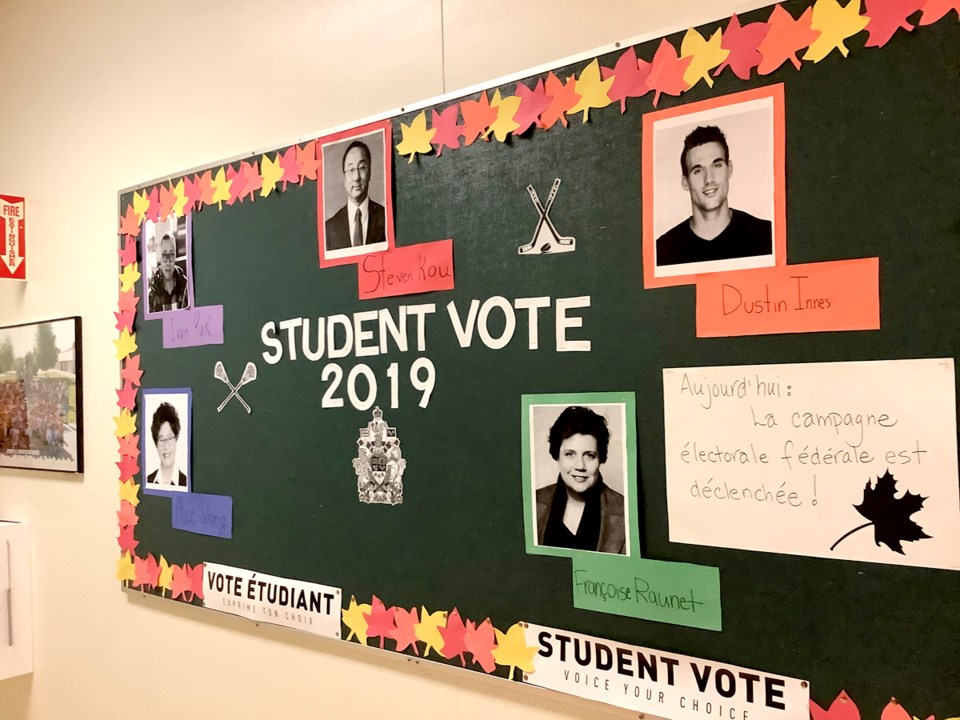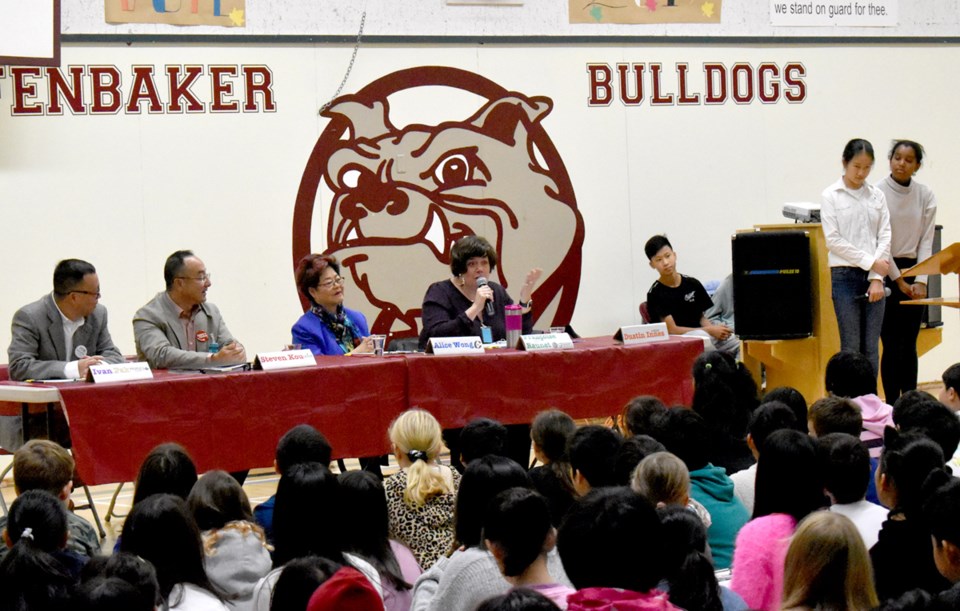Students at Diefenbaker elementary got a quick lesson in political rhetoric at a Student Vote all-candidates forum on Monday.
When a student asked Ivan Pak — who is running in the federal election for the People’s Party of Canada (PPC) — on his party’s stand on refugees, the response from the candidate was that there is “misinformation” about the party’s stand.
“Get the facts straight — that’s my response,” he said.
The student explained that his family came as refugees from Vietnam, and if the PPC’s policies of closing “open borders” had been in place, his mother might have died in their home country.
Pak said the PPC welcomes real refugees, but not illegal ones. He added that economic immigrants are important for Canada.
In preparation for the Oct. 18 Student Vote event, when students will cast their ballots at Diefenbaker to learn about the electoral process, questions were lobbed at the candidates about Justin Trudeau’s brown-face, how to solve the climate crisis, whether universities should be free and Indigenous issues.
Brandon Sekhon said, if he could vote, he would probably lean toward the Greens, but Alice Wong, who has been the member of Parliament for Richmond Centre for 11 years, would make a “pretty good second choice.”
Brandon was most impressed by the Green party’s Francoise Raunet because her explanations were clear.
“I could really understand how their platform was going to work for post-secondary funding,” he said.
When questioned how the Green party would afford to offer free tuition at post-secondary schools, Raunet said, like elementary schools, all education should be free. Currently, private companies are getting subsidies, causing pollution. The Green party would eliminate fossil-fuel subsidies and close tax loopholes, thereby raising money for things like free tuition.

When asked what he thought about Trudeau’s brown face when he was a teacher in Vancouver, Kou, who’s running as a Liberal in Richmond Centre, defended the prime minister, saying he apologized “sincerely.”
“I accept the prime minister’s apology,” Kou told the gymful of students at Diefenbaker.
Raunet said, although it was 19 years ago, people have known for a long time it’s not okay to dress like this, adding that “a culture isn’t a costume.”
The lesson for people to learn is that it’s okay “to raise your voice when you see something that is unfair or unjust,” Raunet said, “because people don’t always know they have a bias.”



